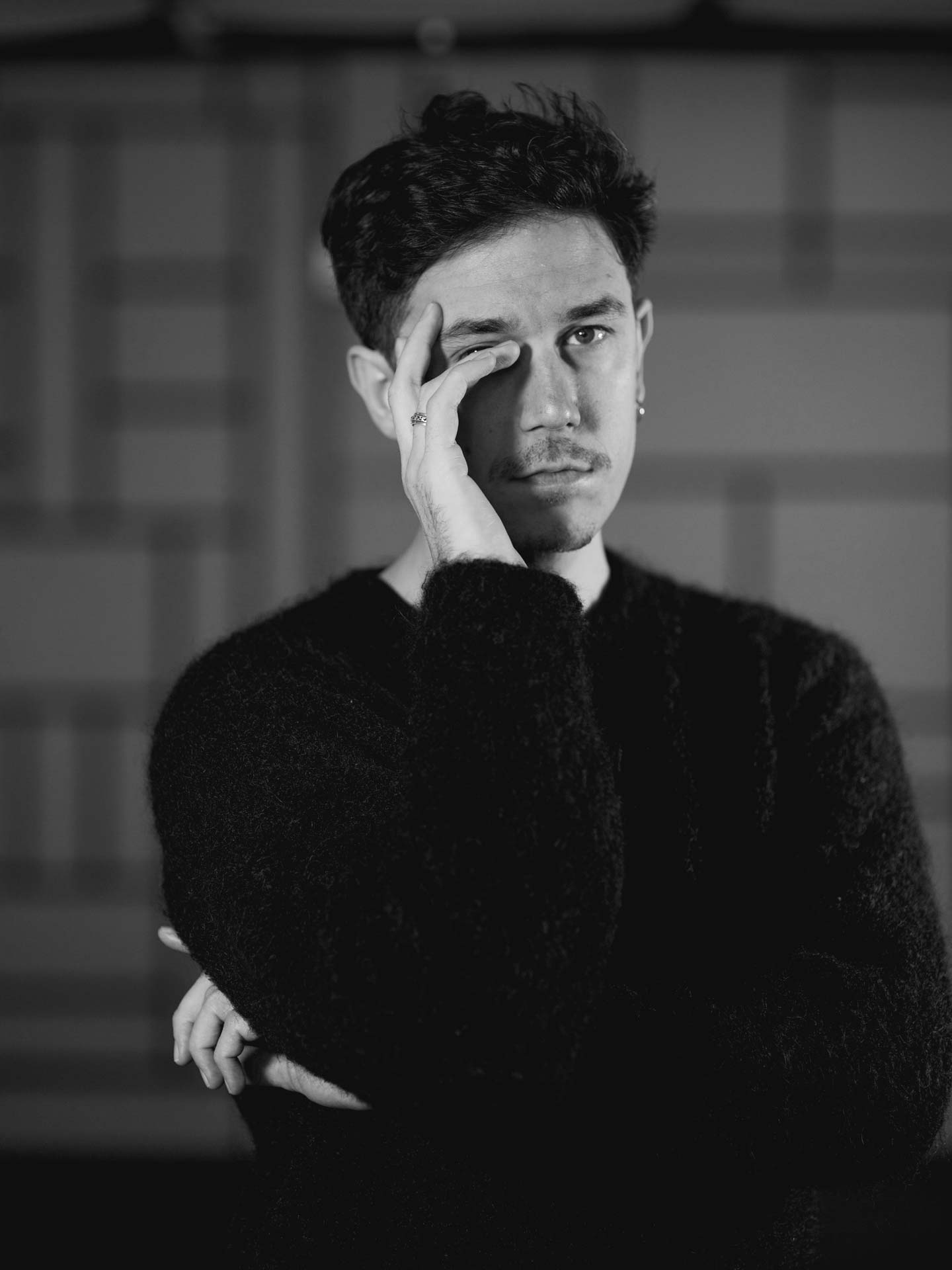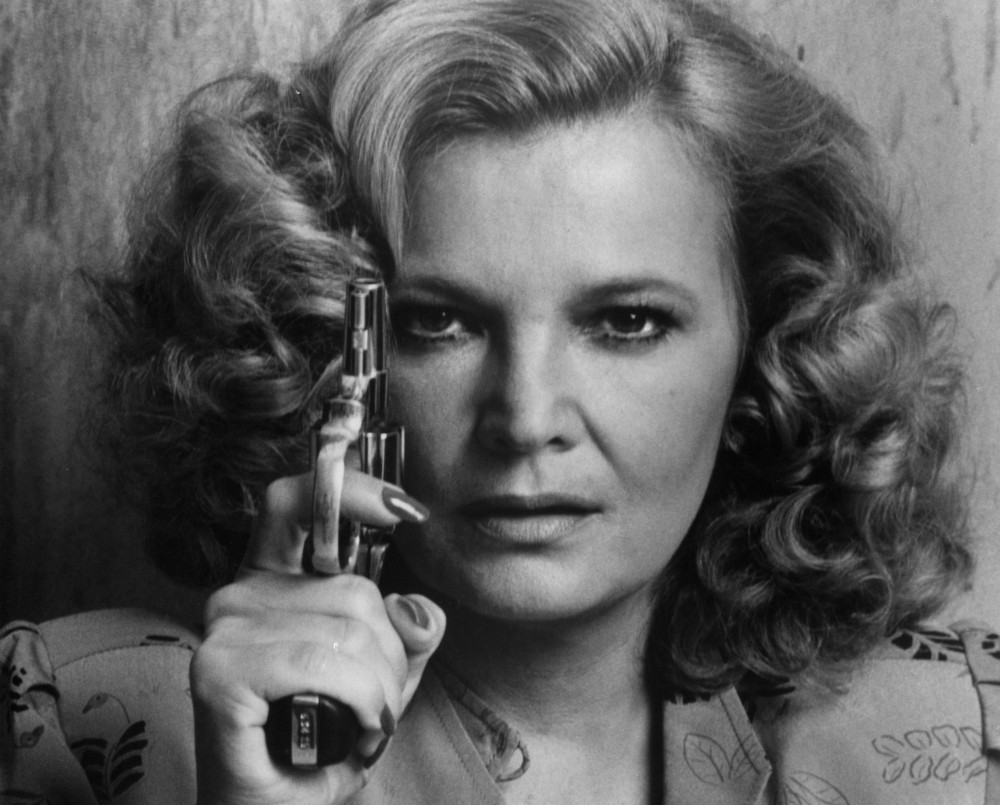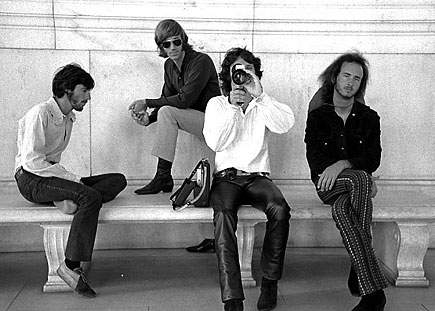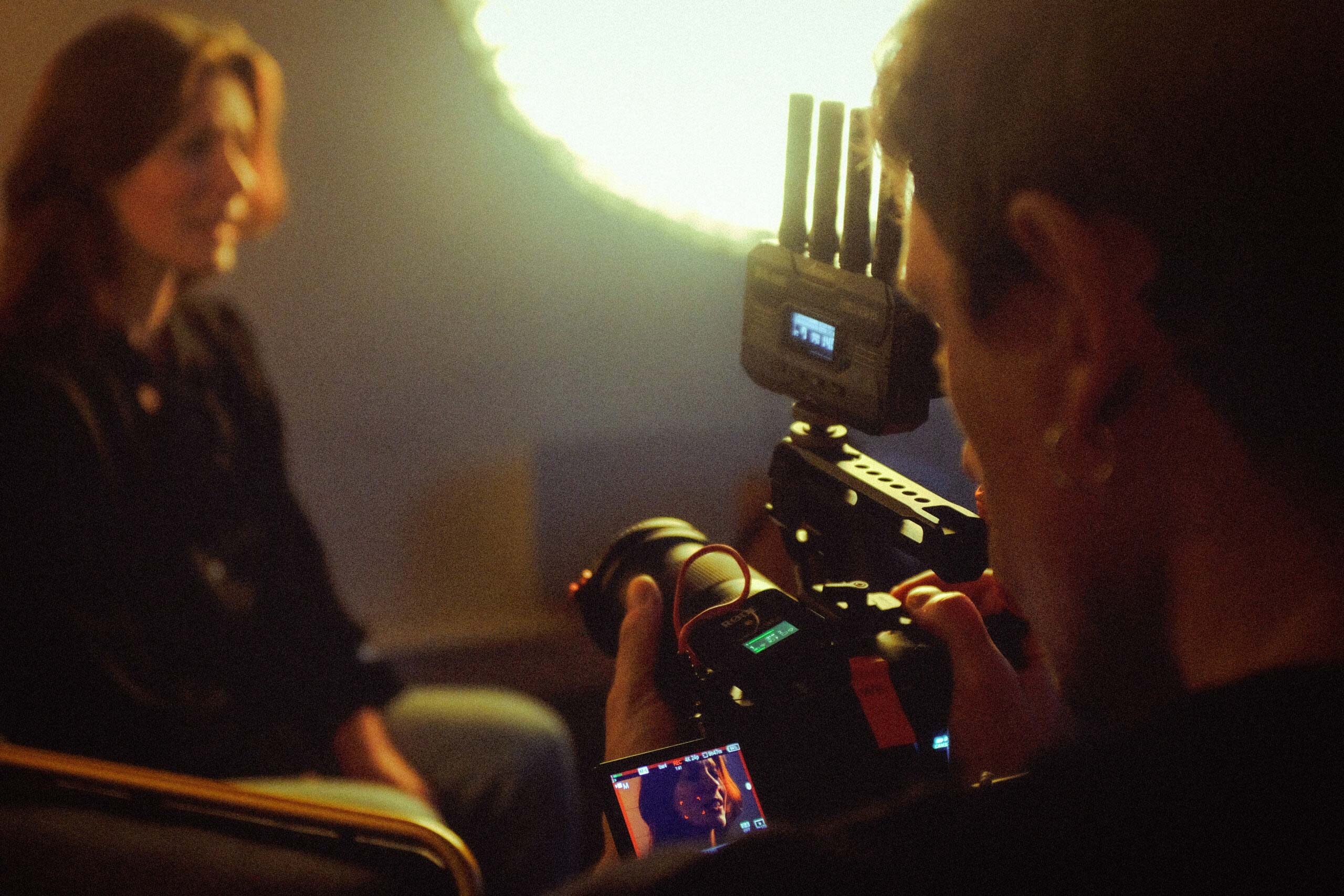“The only way to understand a character is through yourself.”
Elia Kazan
About
the studio

Agarte Studio is an acting training ground with a specialization in camera work, located in the heart of Paris. Our dedication stems from years hands-on experience and a genuine love for cinema.
We prepare actors to manifest the director’s vision by providing them with efficient and pragmatic acting techniques, along with an understanding of camera dynamics, language, and requirements. Simultaneously, we assist directors in gaining deeper insights into the actor’s point of view, enabling more effective communication and the attainment of the desired performance.
We breathe life into characters through creative vulnerability. At our core, we cultivate cinematic charisma.
At Agarte Studio everyone will find a supportive, safe, collaborative and non-judgmental environment that nurtures trust and unlocks each participant’s cinematic potential. Joining Agarte Studio provides a unique opportunity to explore the art of acting for the camera alongside a community of like-minded individuals.
Agarte Studio offers classes for all levels of competence , from rookies to amateurs to professionals. We prioritize quality over quantity we choose to limit the number of participants to ensure personalised attention and full immersion in the craft.
To maintain this level of depth and focus, new students are required to get through an audition before receiving an invitation to join the workshops. This ensures a cohesive group where each participant is ready and committed to the work.
Classes are held in English due to the international attendees, but every participant is welcome to work in their preferred language. We’re fluent in English, French, Italian, and Spanish.
Our
philosophy
Acting is an experience in which the actor must navigate a delicate balance of opposites – a constant interplay between technique and intuition, control and spontaneity, searching for free will in causal determinism. It’s the art of finding truth within the confines of a scripted narrative, making it seem effortless while balancing the complexities of emotion and cinematic craft.
It’s a dynamic art form. The final result in a take represents the actor’s maximum degree of skill and emotional availability at that particular moment, sculpted in time.
We believe there are three main stages in the craft of acting:
Find out more
Stage one: know yourself
Before being actors, we are human beings, and like every human being, we carry with us our personal blocks, tensions, emotional mistrust, self-judgment and inhibitions. All these byproducts of fear limit our self-expression, impact the body and enhance a unique characterization that is us, in our daily lives.
But to journey into the character’s core, to unveil the character’s psyche, or soul, actors need to free themselves, they need to understand themselves profoundly to adapt to different (given) circumstances, constantly moving away from their comfort zone given by crystalized habits and daily routines
While there is a relatively simple and specific process to embody a character initially created on a blank page, achieving harmony in execution requires the development of ability like intuition, empathy, gusto, confidence through a process of trial and error. It’s a practical understanding which must evolve day by day. It requires strong will to know oneself.
Stage two: feel everything, express what’s indispensable
Is it useful, or even necessary, for the actor to be emotionally engaged when acting? This question has been a matter of scrutiny for centuries, but since healthy human beings are constantly experiencing emotional states, we believe it’s impossible to exclude emotions from a scene. The key difference is whether the emotion the actor is feeling matches the character’s needs or not. In both cases the actor is affected by an emotional state. That’s why we train to experience emotions without being impaired, fueled or limited by them, but to summon them within us to let them seamlessly flow into the camera.
It’s important to live a process of skill development and liberation from often self-imposed constraints. The body needs to be trained and relaxed, the mind needs to be sharp and aware, and the soul needs to be bared through the voice and the eyes. Undivided presence is key to achieve absolute freedom on screen and a high degree of discernment is necessary to make creative choices. Every spectator is inherently attuned to honesty and deception, that’s why the screen requires physical and emotional truth.
Stage three: your way
During our classes and workshops, we handle the emotional life with the utmost care and respect by providing personalized coaching tailored to each actor's specific needs, to bring clarity thus overcoming uncertainties. One actor might possess a natural stage presence but struggle with emotional availability, while another might become overly emotional and forget about their voice. Yet, someone else might need to focus on connecting with the text. In each case, development of a healthy confidence is essential.
We train to listen and observe, to be present and aware, perfecting intuition to allow technique to dance with intelligence and a genuine emotional life. These are the subtle competencies we aim to develop at Agarte Studio.
We facilitate actors in finding their own personal way of expression.
Meet the Director

INT. DAY - MORNING - AGARTE STUDIO
Antonio started acting at the age of 13 in a little town in the north west of Italy. As an Alumni at the prestigious American Academy of Dramatic Arts, he is classically trained in Stanislavsky system, Meisner technique, Anne Bogart’s Viewpoints, Tadashi Suzuki’s method. In Los Angeles, Antonio deepened his craft by closely working under the direct guidance of most beloved and respected acting coach Eric Morris. In Tokyo Antonio trained in classical Japanese Noh theatre, in the Kita School style.
Inspired by the work of Kazan, Bolevslavsky, Meyerhold and A.S. Neill, among other wonderful pedagogues, he started developing a personal and modern vision on teaching the evanescent craft of acting. After years of theatre practice, staging his own plays and directing other’s, he moved behind the camera.
He worked in South Korea, USA and Europe. He shares his passion for acting and directing by teaching modules and masterclasses at Cours Florent and Sorbonne Université. He’s the founder of Agarte Studio.
TECHNIQUE
To describe the great Japanese actor Toshiro Mifune, visionary director Akira Kurosawa said: “He had a kind of talent I had never encountered before in the Japanese film world. It was, above all, the speed with which he expressed himself that was astounding. The ordinary Japanese actor might need ten feet of film to get across an impression; Mifune needed only three feet.”
When motion pictures were filmed on celluloid, actors needed to be prepared to deliver the best take with precision since each take consumed meters of film and had a tremendous cost. In the digital era, with an almost infinite amount of takes at a production’s disposal, actors might have lost the ability to deliver a precise performance in the shortest amount of time. At Agarte Studio, we aim to restore this skillset.
By doing so, the actor develops confidence and creativity, becoming accustomed to trusting their instincts while also maintaining a strong technical proficiency and quality of action. Although there may be numerous ways to approach a scene, only one artistic vision serves the storytelling in its entirety, in cinema, is the director’s.
Our work focuses on:
Find out more
Breathing & Creative Movement
In the animal realm of mammals, breathing is possible because movement of the skeletal muscle called diaphragm. The diaphragm is located just below the lungs. The more stressed we are, the more an untrained diaphragm movement is impacted by it. Breathing is the only volitive act that can regulate thoughts and emotions at will. To breathe means to be. Movement and breathing are interrelated, without one the other cannot exist. To move out of daily patterns and routines is necessary for actors to act beyond personal habits. We train breathing and movement to enhance awareness, attention and to be as free as possible at any given moment.
Voice & Expression
The voice is a musical instrument where the vocal cords express the soul and the diaphragm work expresses the state of mind and the emotional life of the player. We communicate verbally to express thoughts and ideas and through the quality of the sound - the grain of the voice - we express how we feel deep inside. Even if cinema is a visual art form, when a piece of dialogue is spoken the actor is required to find the balance between his personal emotional life and the character’s words. The voice is key to harmony.
Character Development
First, there is the individual who becomes an actor, and the actor that becomes a role, a character. Characters often differ significantly from the individuals portraying them.v It is essential to acquire the skills to undergo an organic transformation, with commitment and precision to bring a character to life, to make an alien nature become as a second nature; seamlessly flowing out. It’s important to create the reality of an individual, a human being, expressing their self.
Emotional Availability
Good screenplays, character and films are constantly engaging the audience at on a core, emotional level. Actors are required to master the necessary steps and processes to become emotionally available on cue, with different degrees of results and consequences, the managing of which also needs to be learned.
Camera Language
The camera is a silent scene partner gazing into the actor’s soul through their eyes and even most subtle movements and alterations. The camera sets the rules of the game. In good cinematography, each camera angle, movement, and shot size conveys a unique meaning, supporting the storytelling. To master the camera’s language – the cinematic storytelling – could easily mean for an actor the difference between a poignant or an uninspiring performance.
The camera serves as a neutral, non-judgmental observer that captures every nuance of the actor’s body and soul. During our classes, we shoot and watch, analyzing and interpreting to enhance experience, confidence, and understanding. We train to deliver the best performance in any setting and leverage the creative restrictions of camera movement, shot sizes, and focal lenses to our advantage. We shoot static as well as in motion.
Text Exegesis & Creative Writing
We work on critically interpreting the text and subtext, aiming to unveil its themes, symbolism, hidden dynamics, and intended messages. Our goal is to develop a comprehensive understanding of all available subtext options and explore ways to connect with and express them.
Writing scenes involves creative problem-solving, a valuable skill for actors. It prompts them to think critically about character motivations, plot development, and dialogue, which can greatly benefit their acting work.
Noh kata
We incorporate the fundamentals of Japanese Noh theatre practice in our training, to counterbalance the spontaneity of movements and impulses with bodily discipline and physical awareness. In Tokyo Antonio trained in classical Japanese Noh theatre, Kita School style.
Program

Masterclass with Giacomo Abbruzzese
Masterclass with Giacomo Abbruzzese
September 2 to 7 | 48 hours total
A six-day intensive masterclass with acclaimed director Giacomo Abbruzzese at Agarte Studio, taking place from September 2 to 7, 2025. Tailored for trained actors and those with on-set experience, this immersive program offers a deep dive into scene work, character development, and the intricacies of the actor-director dynamic. Guided by one of Europe’s most distinctive cinematic voices, participants will engage in hands-on work within a professional setting, pushing their craft both artistically and technically. Spots are limited — early application is strongly recommended.
Audition required before admission → Book your audition

Monday & Tuesday Acting Classes
Monday & Tuesday Acting Classes
Discover the program →
September – June | 18 hours/month | 1 class/week
Core Features
Regular on-camera practice
All rehearsals filmed, reviewed, and analyzed
Monologues filmed every 8 weeks (progress tracking & reel material)
Scenes shot every 8 weeks (includes directing, editing, shot planning & reel material)
Students rotate in front of and behind the camera (directing & crew experience)
Guest Workshops
Extra sessions with working professionals:
Directors
Screenwriters
- Casting Directors
Audition required before admission → Book your audition

Individual Sessions
Individual Sessions
→ book your Individual Session
1-on-1 coaching. The footage will be provided at the end of the session.

Personalised Group Workshop
Personalised Group Workshop
→ Please contact for a quote
It’s possible to design workshop formats catering to the specific needs of different groupings.
If you’re interested please provide the following details:
Workshop goals
Workshop dates and times
Workshop location (city and country)

"The camera is relentless, much more so than the theater audience, it reads right into you. The camera can be an accomplice.”
Marcello Mastroianni
Testimonials
Eric Morris
“Antonio’s foresight allows him to perceive the reflections, tones and nuances of the character he’s creating, making his work remarkable and deep. His artistic commitment and creative sensitivity guide him into an intelligent and versatile approach with the life on stage. The quality of his work is incredibly effective.”
Matthew Gasda
“Antonio possesses a unique ability, to take the essence of a story and translate it seamlessly to the screen while preserving the depth and authenticity of the original work. His dedication to our collaboration was unwavering, and his keen insights and creative input elevated my play to new heights in his screenplay adaptation.”
Sabina Gregoretti
“His technical skills & deeply insightful approach are a game changer.”
Julie Vatain-Corfdir
“Antonio’s approach to teaching is a measured blend of precise, practical prompts and thoughtful, self-reflexive meditations on the art of acting across schools and techniques. Though in full command of his craft, his attitude is to judiciously position his advice in the service of both text and actor. When he conducted a masterclass with students in the humanities at Sorbonne Université, he was immediately able to create an atmosphere of trust, where students made themselves available for the character’s emotions even if this involved taking risks. Unsurprisingly, the students immediately clamored for further workshops.”
See More testimonials
Louis Powell
“Antonio taught me to believe and trust myself. He helped me to push myself to reach my goals. A great acting coach.”
René Burleigh
“Acting is a challenge. Often, you have to dig up parts buried inside of you and make them come to the surface to deliver a credible performance. For me, that’s where Antonio excels. He has a gift of making you confront yourself, help you strip away the layers of artifice you’ve built up, to release inner truths that can bring a persona to life in front of the camera. And he does that with unfailing respect, for you and for the whole class, which ensures you are learning in a safe space.
He is perceptive — of both the actor, and of the character on a page — and he guides you through the mechanical (blocking) to the psychological (subtext). Add to that an informed appreciation of cinema from many horizons and an unflagging attention and you can be assured of a valuable and enriching experience in his class. Don’t hesitate.”
Victoria Leroux
“Antonio’s genuine application without any ounce of judgement, his authentic passion for cinema and acting technics, his lively curiosity for people, and deep sense of pedagogy are nothing but inspiring. In more than 10 years of theatre courses, I’ve never learned as much as in his class; whatever Antonio – aka “The Wizard” – is doing: IT WORKS!”
Elvire Brisset
“Antonio brings in more into the classroom than just “acting theory”, he connects all these this concept to our real, human experience. human being. It’s a very intelligent approach. I was 100% satisfied with the workshop and powerfully impressed by his work as a teacher and director.”
Margot K
“Thank you for your sensitive, empathetic and positive way of directing without never pushing or forcing anything. I felt free and safe at the same time. Great job. I feel glad having had the opportunity to discover Camera and directing in this way. Thank you also for your approach, your vision of the Director’s job, everyone brought something to the workshop and you showed us the right guidance allowing to reveal it in a trustful environment.”
Joanna Charyt
Antonio is a very experienced acting teacher. He focused me back on crucial basics such as body movement and breathing. His words cut through my stubbornness and his knowledge is very impressive.
I would recommend his classes to anyone who is not afraid of new challenges and wants to get to know themselves.”
FAQ
What sets Agarte Studio apart from traditional acting schools?
At Agarte Studio we focus exclusively on camera work. We provide a space, where actors can have continuative training in front of the camera, to keep improving. By constantly experimenting, observing and dissecting their performances, actors will gain a clear understanding of the craft of acting and the medium they’re working with.
Agarte Studio is also a training ground for directors. Weather is an actor fascinated by the directing department or a director interested in improving the practical understanding of acting, we provide guidance, practice and knowledge to facilitate the fulfillment of their interest.
Another aspect is the different ethos in choosing whom to work with. While acting schools and academies offer valuable experiences with classmates from various backgrounds and aspirations, they might also consist of individuals at contrasting levels of commitment. At Agarte Studio each student is carefully chosen for their shared willingness to explore challenging tasks and material. This creates a focused environment where all participants are dedicated and able to fully engage in the learning process, ensuring a cohesive and safe experience. It doesn’t matter if Agarte Studio hosts a rookie or a professional working actor in the same workshop, because everyone benefits from everyone elses work. Agarte Studio is, and will remain a boutique atelier, to ensure the highest quality possible to its students.
Agarte Studio is a new training ground in Paris, but draws from over 25 years of experience in the field, including 12 years of teaching hundreds of actors.
Do working actors need training?
“After he reaches a certain position the actor does no more homework. Take a young actor, unformed, under developed, but bursting with talent, full of latent possibilities.
Quite rapidly he discovers what he can do, and, after mastering his initial difficulties, with a bit of luck he may find himself in the enviable position of having a job which he loves, doing it well while getting paid and admired at the same time. If he is to develop, the next stage must be to go beyond his apparent range, and to begin to explore what really comes hard. But no one has time for this sort of problem. His friends are little use, his parents are unlikely to know much about his art, and his agent, who may be well-meaning and intelligent, is not there to guide him past good offers of good parts towards a vague something else that would be even better. Building a career and artistic development do not necessarily go hand in hand; often the actor, as his career grows, begins to turn in work that gets more and more similar. It is a wretched story, and all the exceptions blur the truth.
How does the average actor spend his days? Of course, it’s a wide range: from lying in bed, drinking, going to the hair dresser, to the agent, filming, recording, reading, sometimes studying; even, latterly, toying a bit with politics. But whether his use of time is frivolous or earnest is beside the point: little that he does relates to his main preoccupation – not to stand still as an actor – which means not to stand still as a human being, which means work aimed at his artistic growth – and where can such work take place?”
From ‘The Empty Space’ by Peter Brook.
Why does Agarte Studio provide free of charge meetings with industry professionals?
We organize meetings with industry professionals such as casting directors, agents, producers, authors, actors, and directors. These sessions are open to the public, and participation is on a first-come, first-served basis, for free.
This approach is rooted in the principles of accessibility, talent development, and collaboration.
We operate with the utmost integrity, and as such there is no conflict of interest: our focus is solely on providing a supportive and equitable platform where raw talent can gain experience and where industry professionals can connect with the best emerging actors.
This dedication not only enhances our atelier’s reputation but also actively contributes to the growth and diversity of the entertainment industry.

